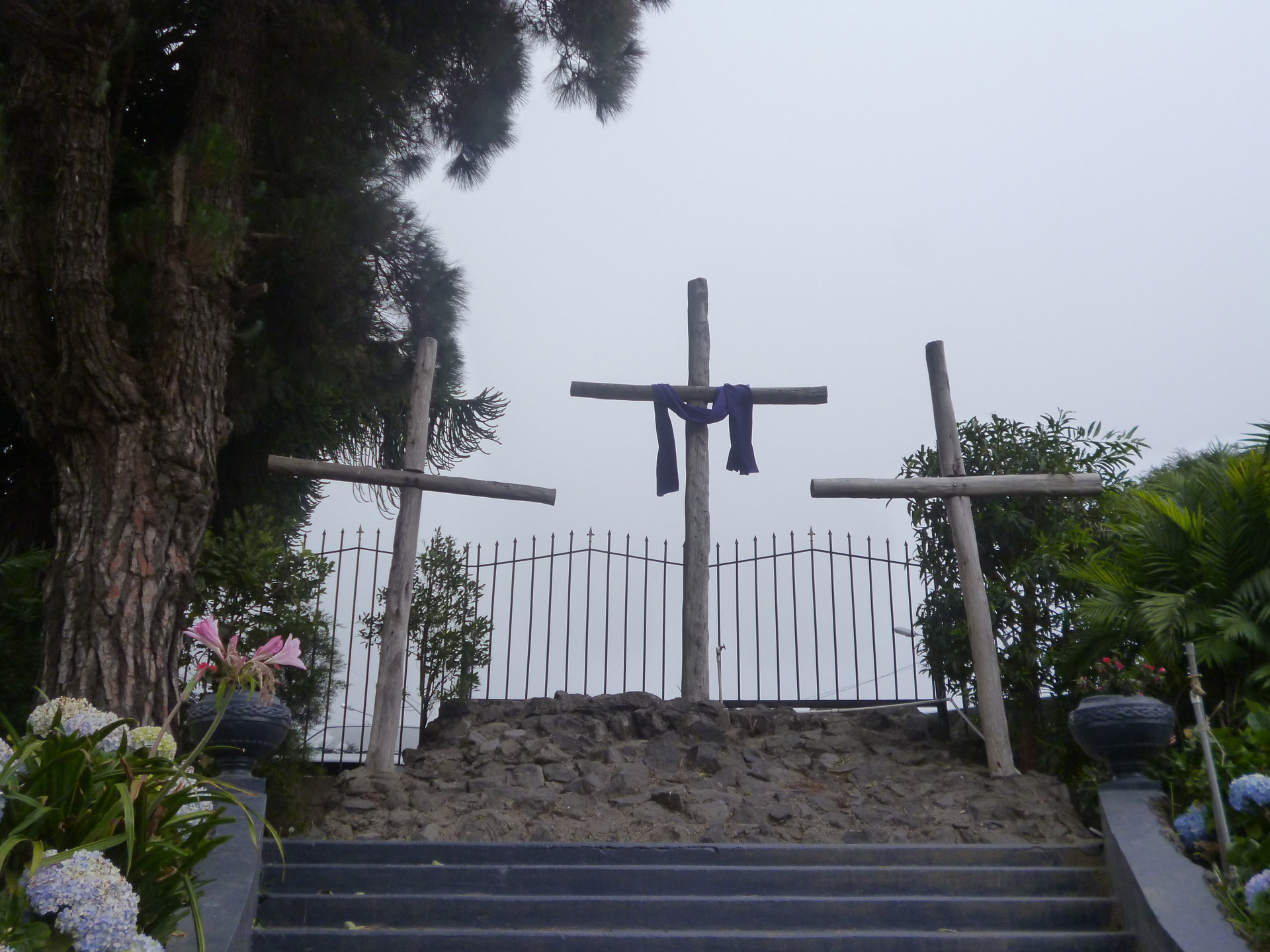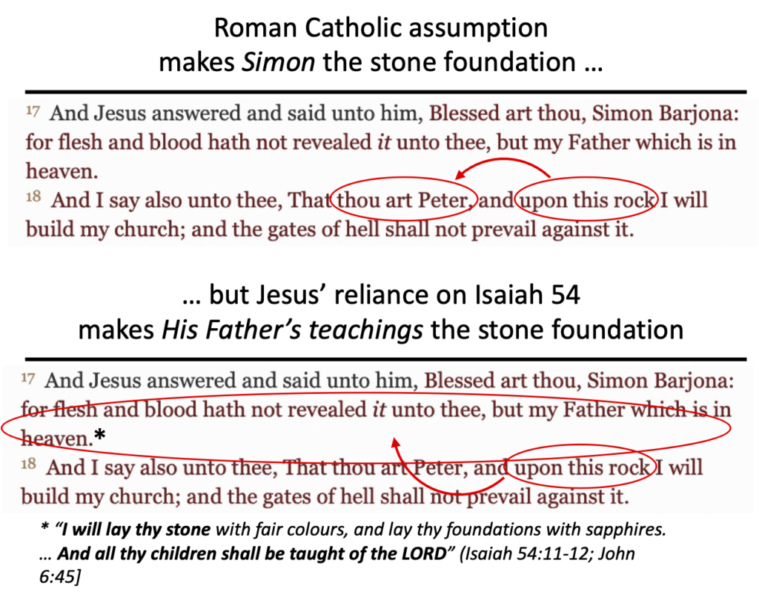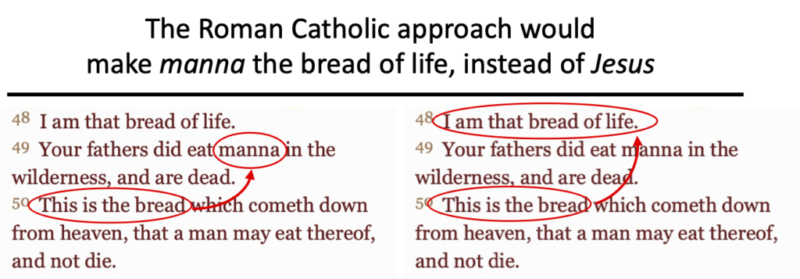
This the thirteenth in a series reviewing John C. Wright’s A Universal Apologia for the Catholic Church. See the index.
The Kingdom
We now continue our discussion that we began in part 12 of Wright’s argument regarding unity in Christ. At issue now is the nature of the church, which for Wright considers to be of foremost importance. He writes:
“While there may be some in Great Britain grieving over the loss of the American colonies who rebelled, there can be no Americans thus grieved, because they are the rebels. To them, the rebellion is laudable, not shameful, since to them it is an escape from a dark dungeon. This then was the first point at which I realized that my reasoning would not allow me to agree with my Protestant friends but forced me to agree with the Catholics. One Christ came to Earth and preached one message with one baptism about the establishment of one kingdom. The Church is unique in world history. Even an atheist must recognize that. No other prophet, sage or philosopher established a Church properly so called.”
When Wright describes “the establishment of one kingdom”, it is an earthly kingdom: Roman Catholicism, “The Church.” He freely equates the establishment of the kingdom that Jesus preached with the establishment of his church. Recall that Wright defines the church not just in terms of its members (i.e. the body of Christ), but also in terms of its ecclesiastical hierarchy, authority, and dogma. While it is easy to show that Jesus established his church—members who collectively form the body of Christ—did Jesus also establish the rest? Specifically, did Jesus come to establish his foretold kingdom of God in the form of the Roman Catholicism on earth? For that we must examine scripture and a little history.
From that time on Jesus began to preach and to say, “Repent, for the Kingdom of Heaven has drawn near.” — Matthew 4:17
…and…
“In my Father’s house are many places to live. If it were not so, I would have told you, for I go to prepare a place for you. And if I go and prepare a place for you, I will come again and will receive you to myself so that where I am you will be also.” — John 14:2-3
..and…
“My kingdom is not of this world. If my kingdom were of this world, then my servants would be fighting to keep me from being handed over to the Jews, but in fact, my kingdom is not from here.” — John 18:36
Jesus came to declare a new kingdom: a kingdom of
heaven. He explicitly said it was not a kingdom of
earth. Moreover, that kingdom had not yet arrived, but was still to come, and to come soon. And so when we read the Olivet Discourse in Matthew 24, Mark 13, and Luke 21, we see Jesus promise to return within one generation to announce the kingdom of
heaven:
But immediately after the tribulation of those days the sun will be darkened, and the moon will not give its light, and the stars will fall from heaven, and the powers of the heavens will be shaken, and then the sign of the Son of Man will appear in heaven, and then all the tribes of the earth will mourn, and they will see the Son of Man coming on the clouds of heaven with power and great glory.And he will send out his angels with a loud trumpet blast, and they will gather together his chosen ones from the four winds, from the one end of heaven to the other end of it. [..] Truly I say to you, this generation will absolutely not pass away until all these things have happened.
It is often understood that (most of) the Olivet Discourse was fulfilled with the destruction of the temple in Jerusalem by the Romans in 70AD. In accordance with Daniel 7:13,11:31, Isaiah 13:10, and Jeremiah 33:25-25,35-36, the covenant with the Jews ended and the kingdom was established and given to the saints.
Wright had made the assumption that all Roman Catholics make: that Jesus’ newly established kingdom—the one spoken of by Daniel—was earthly and that it is the Roman Catholic Church. But that is not what Jesus or Daniel said. Daniel foretold the establishment of three kingdoms, one of heaven, and a succession of two of earth:[4]
In the days of those kings the God of heaven will set up a kingdom that will never be destroyed, nor will its sovereignty be left to another people; but it will break in pieces and consume all these kingdoms, and it will stand forever. — Daniel 2:44
During the iron and clay period, the
heavenly kingdom was established that would never be destroyed, neither would it be subject to sovereign succession, as with earthly kingdoms.
[1] It will last forever. During the same period, this heavenly ‘stone’—not made by human hands—would break the Roman empire to pieces…
As you looked a stone was cut out, but not by human hands, and it struck the statue on its feet that were of iron and clay, and broke them in pieces. — Daniel 2:34
…thus entering the period of the Toes of Iron and Clay, the era of the Roman dioceses. Out of this period arose a fifth kingdom from out of the fourth kingdom:
I considered the horns, and behold, there came up among them another horn, a little one, before which three of the first horns were plucked up by the roots. And behold, in this horn were eyes like the eyes of a man, and a mouth speaking great things. — Daniel 7:8
It is this kingdom—the kingdom of a man—that is given the
earthly dominion that was previously given to the four kingdoms that preceeded it (Babylonian, Medo-Persian, Greek, Roman). This is the first
earthly kingdom:
As for the rest of the beasts, their dominion was taken away, yet they were granted an extension of their lives for a season and a time. — Daniel 7:12
It is within the larger context of these movements between kingdoms that Jesus quotes from the very next verse in Daniel in the Olivet Discourse:
I saw in the night visions, and behold, one like a son of man was coming with the clouds of heaven. And he came up to the Ancient of Days, and they brought him near before him. And to him was given dominion and glory and a kingdom, so that all the peoples, nations, and languages will serve him. His dominion is an everlasting dominion that will not pass away, and his kingdom is one that will not be destroyed. — Daniel 7:13-14
As spoken in Daniel 2, Jesus returned—during the Iron and Clay period—to usher in the beginning of the
heavenly kingdom which would never be destroyed, the very kingdom he came to earth—during the Iron legs period—to announce would be coming within a generation.
What remains is the second earthly kingdom. It is still to come and will be established on earth at the end of days after the destruction of the first earthly kingdom by the heavenly kingdom:
[I]t will break in pieces and consume all these kingdoms. [..] Then the iron, the clay, the bronze, the silver, and the gold were broken in pieces together and became like the chaff of the summer threshing floors, and the wind carried them away so that not a trace of them could be found. But the stone that struck the statue became a huge mountain and filled the whole earth. — Daniel 2:34-35
And so the four kingdoms are given an extension of life in the form of the fifth kingdom for a time, but only for a limited time. When that fifth kingdom is eventually and completely broken and ground to dust by the heavenly kingdom, the stone that had initially struck the statue during the period of the iron and clay feet will then establish a second earthly kingdom in the place of the first, when Jesus returns to rule on earth.
Jesus testified that the Kingdom of God would be taken away from Israel because they rejected him. It would be given instead to the Christian saints by the stone that crushes to dust, the stone that would establish the heavenly kingdom given to the saints as foretold in Daniel and the Olivet Discourse. Jesus also testified that this stone was the words of the Father, through Jesus, the foundation of the church:[2][3]
And Jesus answered and said to him, “Blessed are you, Simon Bar-jonah, for flesh and blood has not revealed this to you, but my Father who is in heaven. And I also say to you that you are Peter, and on this rock I will build my congregation, and the gates of the grave will not prevail against it. — Matthew 16:17-18
…and…
“O afflicted one, tossed by storms and not comforted, behold, I will set your stones in beautiful colors and lay your foundations with sapphires. I will make your pinnacles of jewels and your gates of sparkling jewels, and all your walls of precious stones. All your children will be taught by Yahweh, and great will be the peace of your children. — Isaiah 54:11-13
…and (notably by Simon Peter himself)…
For it stands in Scripture: Look! I lay in Zion a chosen and precious cornerstone. And whoever believes in him will absolutely not be put to shame. This precious stone, then, is for you who believe; but for those who do not believe, the stone that the builders rejected has become the cornerstone, and a stone over which they stumble, and a rock over which they fall. They stumble because they are disobedient to the word; to this result they were also appointed. — 1 Peter 2:6-8
…and…
Jesus said to them, “Have you never read in the Scriptures, The stone that the builders rejected has become the cornerstone. This came from the Lord, and it is marvelous in our eyes?’ Therefore I say to you, the Kingdom of God will be taken away from you and will be given to a nation producing the fruit of it. And the one who falls on this stone will be broken to pieces, but on whomever it falls it will grind to powder. — Matthew 21:42-44
The nation he spoke of is his church. Their kingdom is heavenly. The stone Jesus spoke spoke of is the stone of Daniel. Those who oppose Jesus’ church will be ground by that stone to powder.
The Roman Catholic Church is indeed a kingdom of this earth. But it cannot be the kingdom of God on earth. It is the fifth kingdom foretold by Daniel, not Jesus’ heavenly kingdom (which he already established in heaven), nor his earthly kingdom (which is still to come at the end of the age). This fifth kingdom will be ground to powder and replaced when Jesus returns.
Eschatological Note
Most Protestants do not believe that the stone that struck the Iron and Clay feet of the statue and set up a kingdom that would last forever has yet occurred. They, unsurprisingly, do not believe that Roman Catholicism is the instantiation of that forever kingdom. Protestants reading this will likely be taken aback by the conclusions contained within this article. However, Roman Catholics have long identified the stone of Daniel with the permanent establishment of Christ’s church on earth in the form of Papal Roman Catholicism.
The problem with the Roman Catholic position is that Jesus clearly founded his earthly church during the Iron Legs period of the statue in Daniel. Jesus did not establish his heavenly kingdom until the Iron and Clay Feet period of the statue, after the destruction of the temple in Jerusalem. Additionally, the heavenly stone struck the statue during the Iron and Clay Feet period. But, the Roman Catholic church was not established until the late 4th century, during the Iron and Clay Toes period of the statue after the stone broke the feet into toes.
Depending on your perspective, the heavenly kingdom of Daniel is both too early and too late to be the earthly kingdom of Roman Catholicism. However, the rise of the little horn of Daniel corresponds directly and precisely to the narrative found in Revelation:
“The ten horns you saw are ten kings who have not yet received a kingdom, but who for one hour will receive authority as kings along with the beast. They have one purpose and will give their power and authority to the beast. They will wage war against the Lamb, but the Lamb will triumph over them because he is Lord of lords and King of kings—and with him will be his called, chosen and faithful followers.” — Revelation 17:12-14
In 292AD, Diocletian divided the empire into 12 dioceses, the beginning of the Iron and Clay Toes period. By the late fourth century when Roman Catholicism took over civil authority, there were 13 dioceses, 3 of which were subsumed by Papal Rome as the three Petrine Seats, with 10 kings or toes remaining.
Whether Roman Catholicism arose in the Iron Legs period with Jesus and the Apostles (as Wright alleges) or in the Iron and Clay Toes period of the 4th century (as Protestants allege), neither corresponds to Christ’s establishment of the heavenly kingdom in the Iron and Clay Feet period. But the establishment of an earthly kingdom in the Toes period does correspond to the rise of the little horn, the Beast of Revelation, from out of the Roman Empire.
Both Daniel and Revelation foretell that Christ’s kingdom will triumph over the fifth kingdom.
For more information see the previous post “Ten and Three Horns“.
Footnotes
[1] Specifically contrasted against the four kingdoms of the Daniel 2 and 7, which were successively given from king to king.
[2] See these helpful diagrams made by Timothy F. Kauffman:


[3] Jesus renamed “Peter son of John” to “Simon Peter” or in the parlance of the Ancient Near East, “Simon, son of Rock.” This is similar to how James and John were called “sons of thunder”, and “Jesus Barabbas” meant “Jesus, son of the Rabbi/Master.” In all these cases, the nickname replaced the surname—not the given name—and referred to the person taking on the attributes of something else. These men continued to use their given name in addition to their surname (“son of”) nickname. So, the Rock of “Peter son of Rock” was obviously not Peter himself, who could not have been son of himself. During Peter’s confession, Jesus tells us precisely what the Rock is: the words revealed by the Father. For more information on Peter’s naming, see Scott Cooper’s “Simon Peter: Son of a Son of a Rock“.
[4] This implies that there is no gap in the fulfillment of the prophesies of Daniel and John the Revelator. The fulfillment never paused and we are not waiting for a sign that it will begin again.



